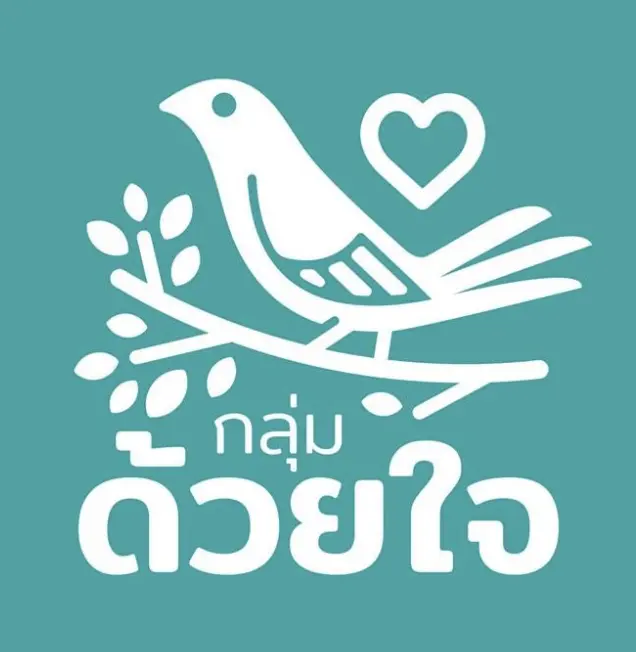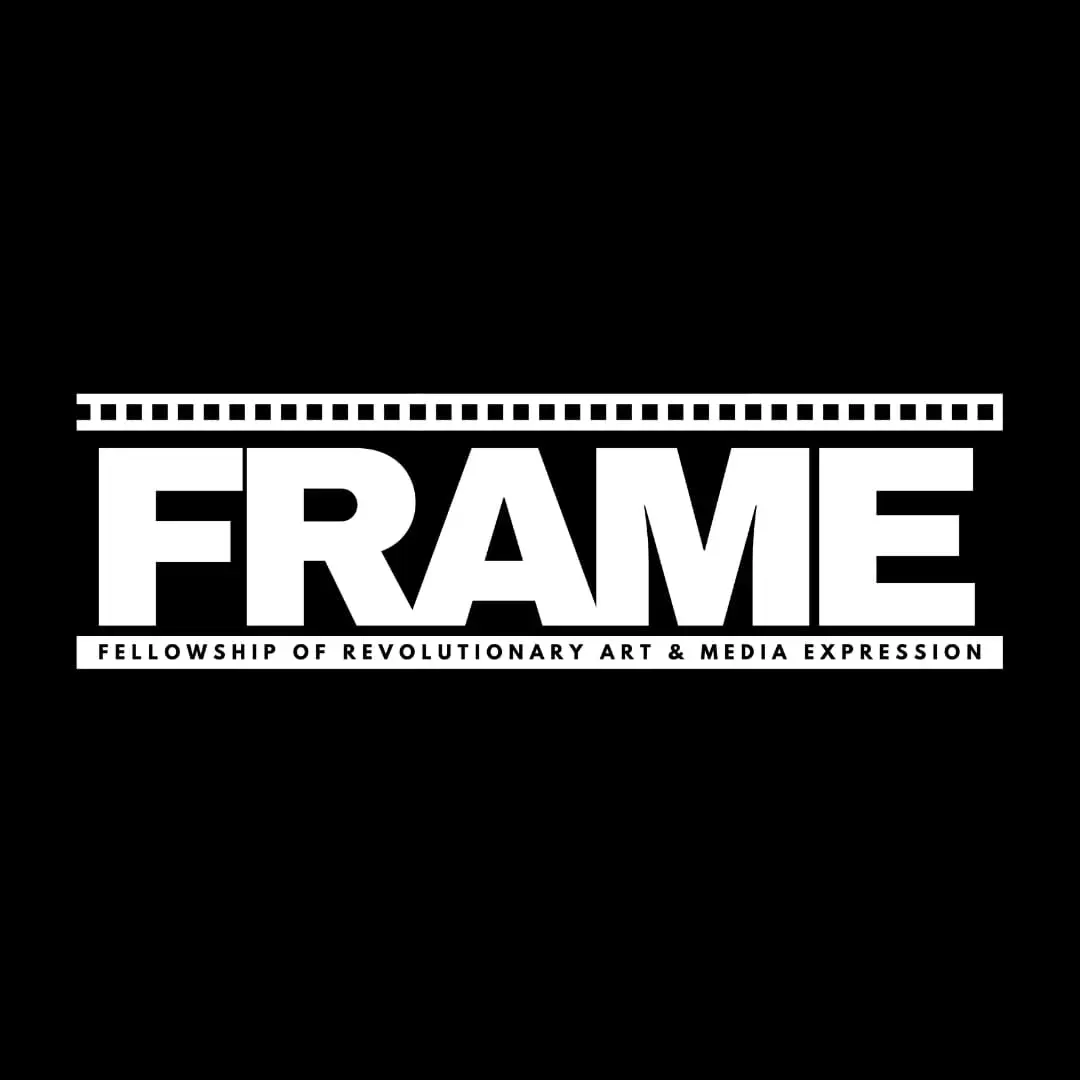Some of the films shown contain material that may be distressing to some viewers, including references to enforced disappearance, land dispossession, forced displacement, gender-based violence, racial and ethnic discrimination, and intergenerational trauma. We acknowledge that viewers have different lived experiences and thresholds. Please engage with the material at your own pace and prioritise your wellbeing. Viewer discretion is advised.

A Hybrid Film Festival of Shared Viewing and Civic Imagination
As civic spaces across the Asia-Pacific face growing threats, Cinemata Currents offers a hybrid festival that brings together cinema and collective resistance – both online and in communities. Organized by Cinemata, a platform for human rights and environmental justice films, the festival runs from Thursday, June 5 until Sunday, June 8, 2025, with previews from Monday, June 2 until Wednesday, June 4, 2025.
Displacement and Countermovement
Thu, Jun 5 at 6:30pm onwards
(Bangkok time / UTC+7)
(Bangkok time / UTC+7)
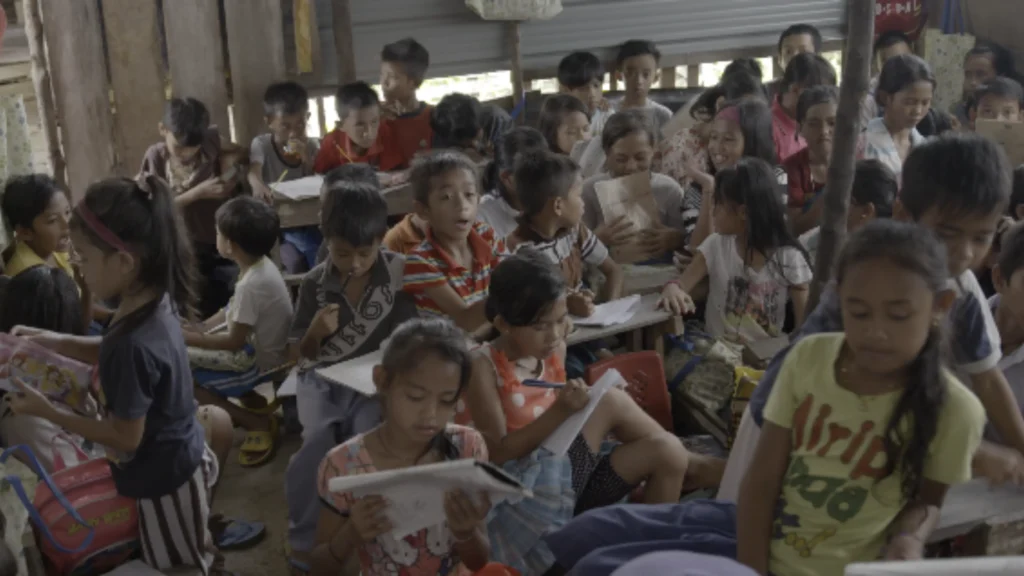
Aku Mau Skola (I Want to Go to School)
21 mins · Putri Purnama Sugua (Malaysia, 2018)
In a baking hot shack with a leaky roof, over 70 stateless children squeeze in daily to study under the guidance of their teacher, Rujiah Sami. Rujiah founded a school four years ago to provide basic education to those living in her community. Her determination is mirrored by some of her students who have to go beyond normal lengths to attain basic reading and writing skills with the hope of a better future. Aku Mau Skola reveals how stateless and marginalised children in Sabah have an incredible desire to pursue learning.
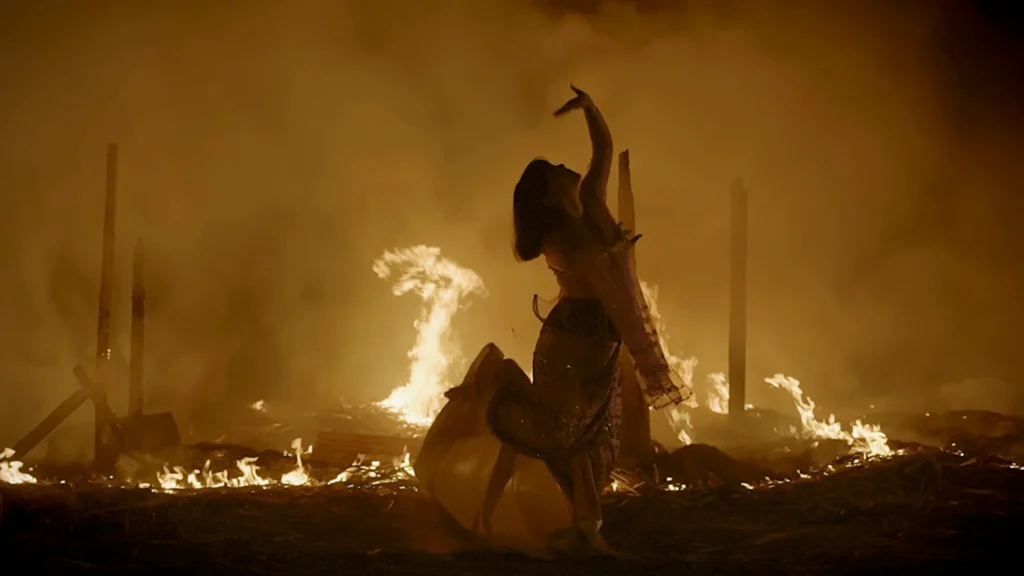
Our Turn
20 mins · Na Gyi / Artists' Shelter (Myanmar, 2023)
After the 2021 Myanmar coup, CDM* doctor Aung flees to a school near the Myanmar-Thailand border, where he teaches and runs a small clinic. There, he meets Ma Aye Mya, a grieving mother who lost her son in a military air raid, and Htoo Htoo, a former footballer coping with the loss of his leg. As Aung helps others through their trauma, he must also confront his own.
(*Civil Disobedience Movement Participants)
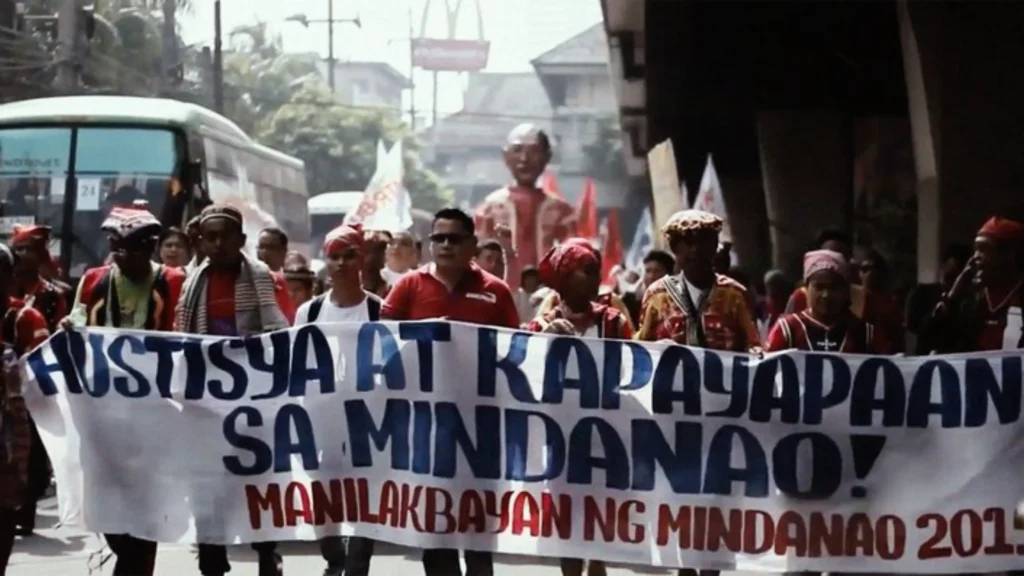
Atohan (Fight)
19 mins · Tudla Production (Philippines, 2016)
Atohan (Fight) is a short documentary on the issues of militarization, killings and usurpation of the ancestral lands of the Lumad people in Mindanao, which pushed them to bring their protest to Metro Manila.
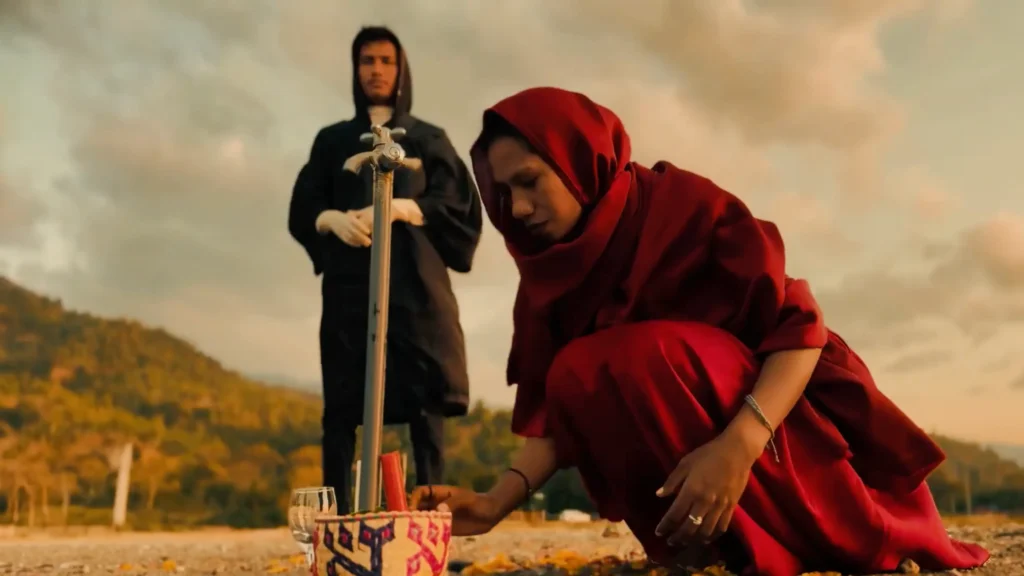
Silent Drop
5 mins · Nocollide Entertainment (Timor-Leste, 2024)
Set in Timor-Leste, this short film follows a young boy as he moves through his daily routine, carelessly using water without much thought. As he goes about his chores, he remains unaware of the value of this essential resource. But when he dozes off, a vivid dream confronts him with the consequences of his neglect.
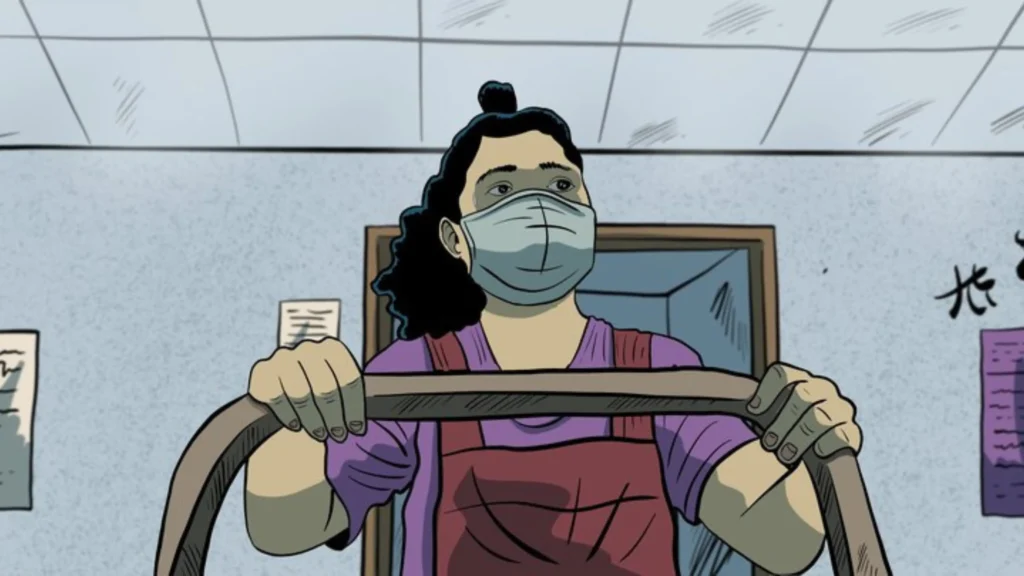
Homebound
17 mins · Ismail Fahmi Lubis (Indonesia, 2022)
Homebound is an intimate portrayal of a migrant worker’s experience abroad and is an urgent wake up call for those who have contributed to a system that takes advantage of 1000s of women each year.
Talkback Discussion: Displacement and Countermovement
Facilitated by Prapasiri “Nan” Suttisom – Chiang Mai–based Thai activist and nonprofit consultant with extensive experience in community development, digital rights, and social campaigning across Thailand and the Mekong region.
Feminist and Queer Subjectivities
Fri, Jun 6 at 6:30pm onwards
(Bangkok time / UTC+7)
(Bangkok time / UTC+7)
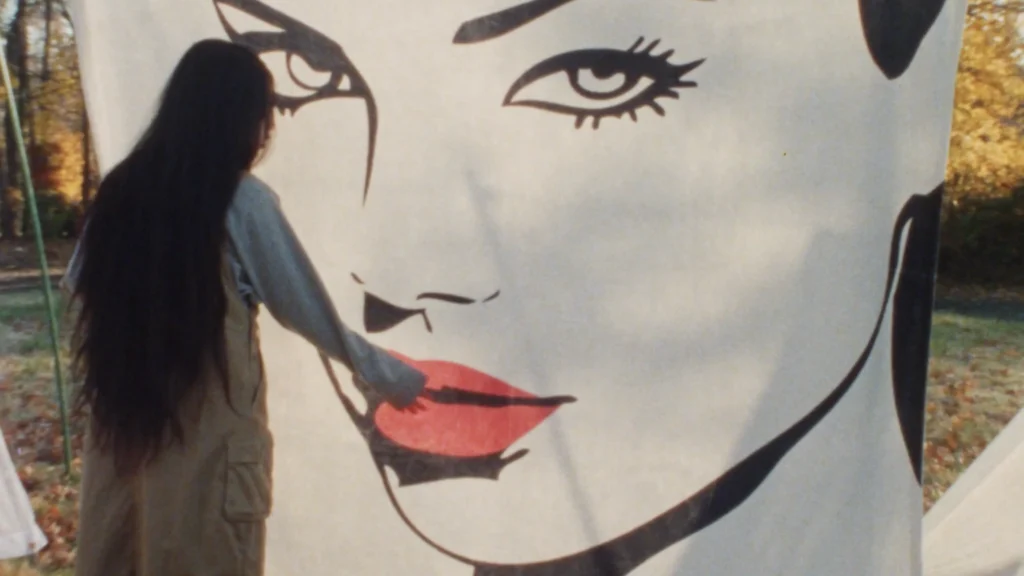
short/cut
14 mins · Ostin Fam (Vietnam, 2017)
Mae, a second-generation Vietnamese teenager living in the US has an obsessive admiration for Angelina Jolie. Mae’s grandmother is over-protective of her granddaughter’s look, especially her long, unruly black hair, which has been kept untouched for years. One day, Mae passes by a hair salon’s new advertisement showing her idol with short hair. Overcome by curiosity, she walks in, and a flattering glorification begins.
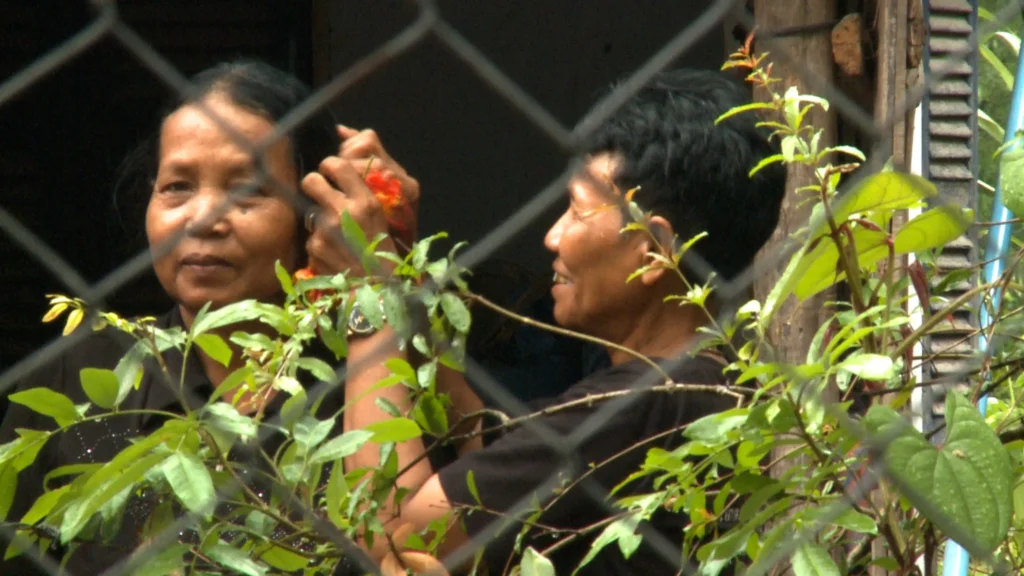
Two Girls Against the Rain
11 mins · Sopheak Sao (Cambodia, 2012)
A captivatingly courageous and touching film about a lesbian couple in Cambodia. The two women have known and loved each other since the time of the Khmer Rouge. The deep bond existing between them and their strength have helped them overcome all different kinds of resistance, including that of their families.
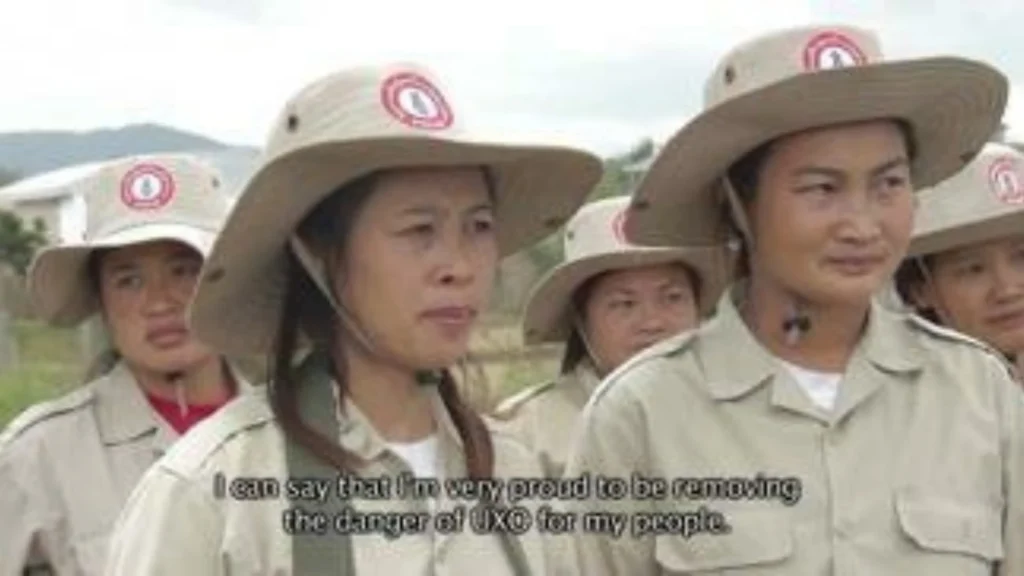
Strong Heart
6 mins · Sommai Phommachan (Laos, 2014)
Laos, in the past, had been through aggressive war with bombs. Although the country was declared to the Lao People’s Democratic Republic in 1975, unexploded mines continue to destroy the lives of people, so the need for the clearance of unexploded presses on. Can a woman do this here? Saysamone in this documentary: “Strong heart” will show you her strong heart to rid explosions out of this land.
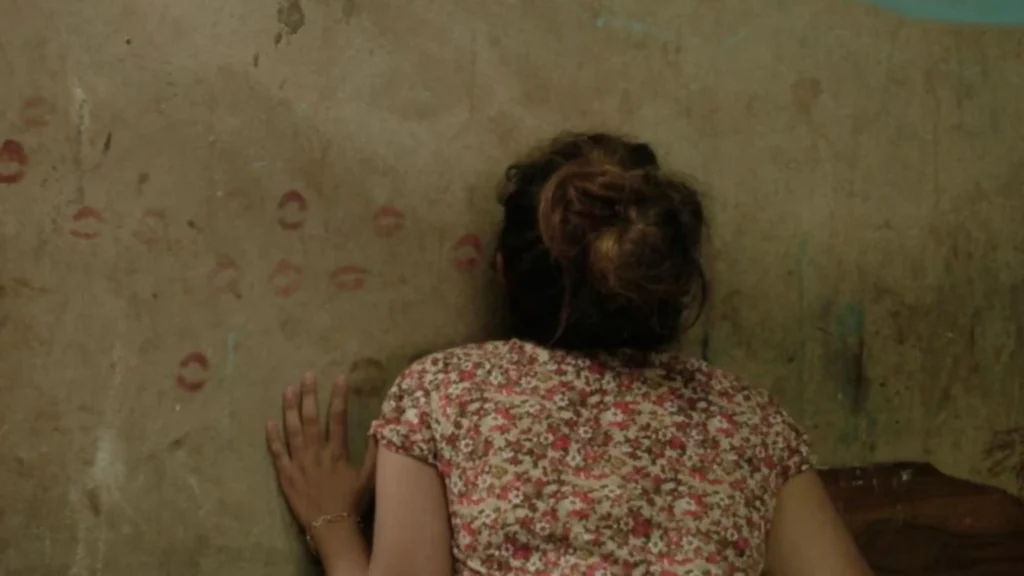
Memoria
39 mins · Kamila Andini (Timor-Leste, 2016)
Set in present time East Timor, the film, as its title suggests, is a necessary reminder of the abominable and often unspoken violence and hardship endured by the women during the conflict the plagued the Timor Leste, started with their independence from Portugal in 1975 and during the dark years of the Indonesian occupation, concluded in 1999.
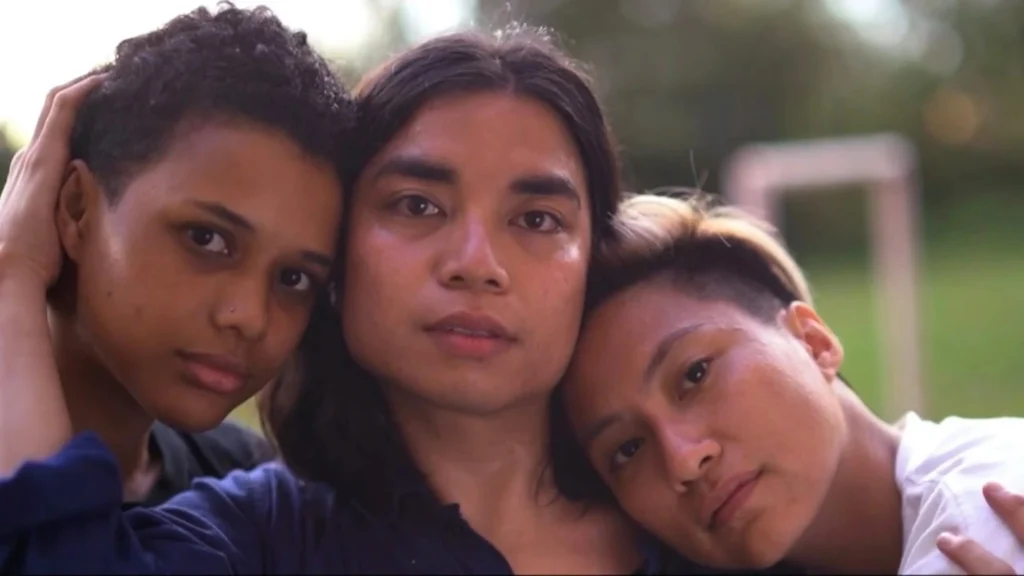
The Visible
4 mins · Atikah Zainidi (Brunei, 2019)
A short documentary to explore what it’s like to be a girl in Brunei.
Three young women live in a society which has ingrained gender roles as law. They face the difficulties of being queer women in a close-knit religious society.
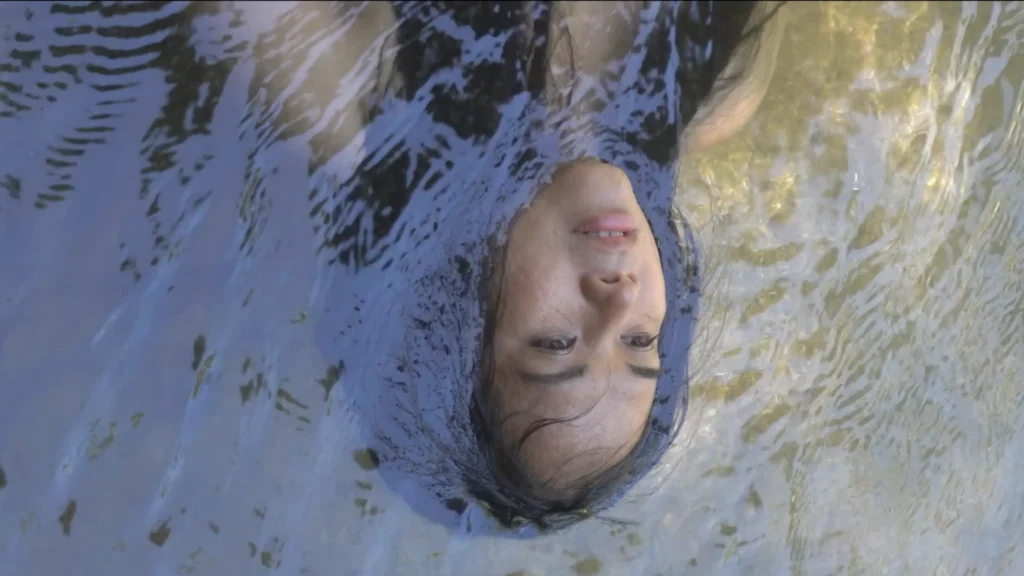
Diwata: Performing Ecotransfeminism
15 mins · Ram Botero (Candy) (Philippines, 2024)
Diwata explores precolonial Philippine mythology through a contemporary ecotransfeminist lens. Created by Ram Botero, a transgender Filipina artist and activist, the project introduces three divine manifestations—Dalikmata, Magindara, and Tara—drawn from indigenous beliefs and political ecologies. In this performance for camera, they appear across three natural landscapes in Mindanao, near Ram’s birthplace.
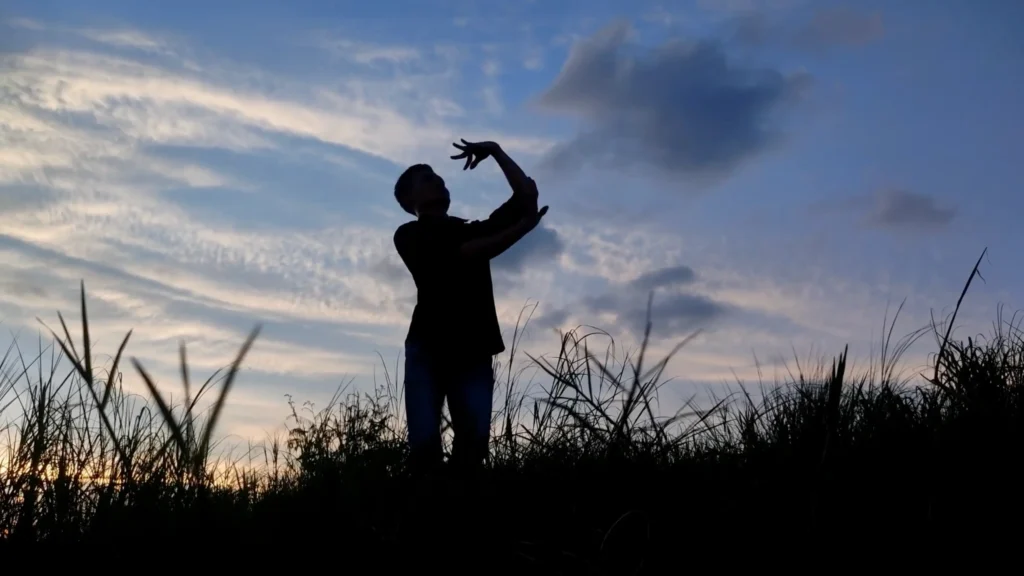
Lao Dance
5 mins · Proud to Be Us Laos (Laos, 2024)
This short film follows Mon Keovankha, a Lao dancer pursuing an arts degree while facing stigma around his craft. Developed through the “Create Story Through Cellphone” workshop by Proud to Be Us Laos and the German Embassy, the film highlights Mon’s dream of building a creative, inclusive space through dance and storytelling.
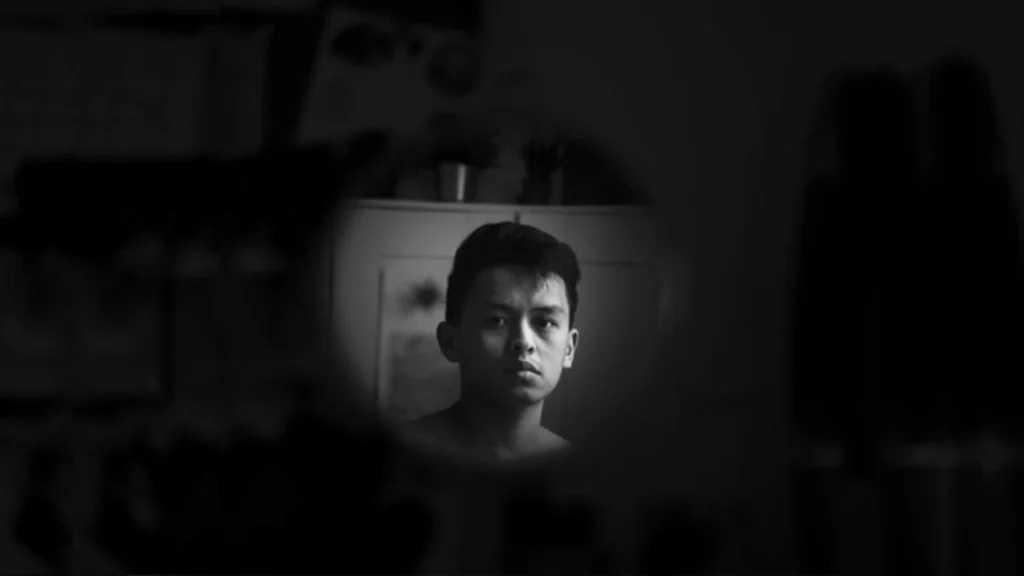
Self-Portrait
8 mins · Adrian Maquilan (Philippines, 2019)
In this intimate film, the filmmaker reflects on his fears and struggles to reveal his identity to his father through a narration of their memories together.
Talkback Discussion: Feminist and Queer Subjectivities
Facilitated by Thysz Estrada – a proud transgender woman, Chairperson of the Philippine Anti-Discrimination Alliance of Youth Leaders (PANTAY), and an advocate for inclusivity, equality, and the power of sports as a tool for empowerment
Minority Counterpublics
Sat, Jun 7 at 2:00pm onwards
(Bangkok time / UTC+7)
(Bangkok time / UTC+7)
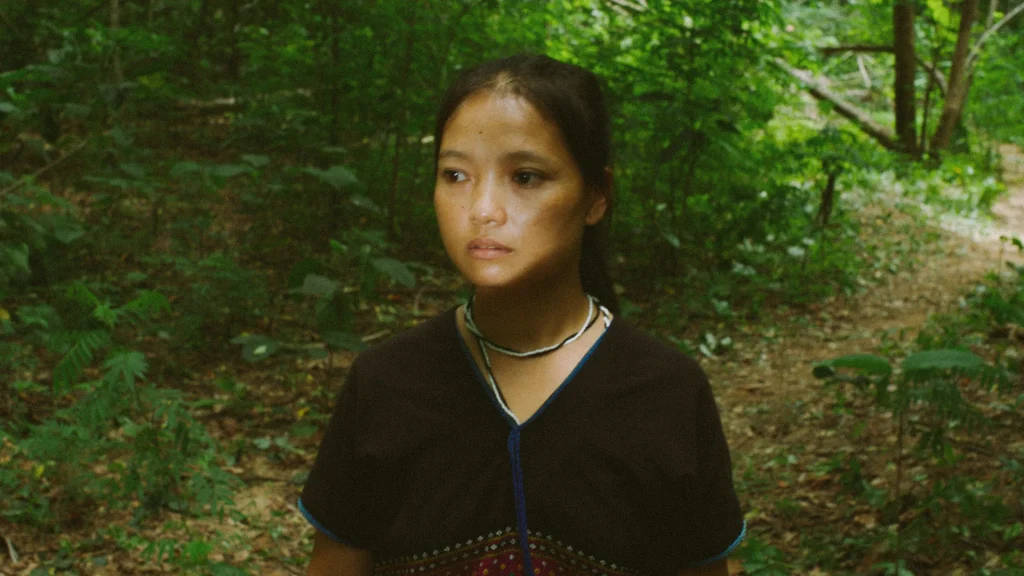
The Purple Kingdom
31 mins · Pimpaka Towira (Thailand, 2016)
Inspired by the case of enforced disappearance of an ethnic Karen activist Porlajee Rakchongcharoen (a.k.a. Billy) who went missing in Thailand near Kaeng Krachan National Park in Petchaburi province, 100 miles (161 km) south of Bangkok. Park authorities arrested the Karen activist on April 17, 2014 for possessing a wild honeycomb and six bottles of wild honey but released him after giving a warning. He disappeared shortly afterward.
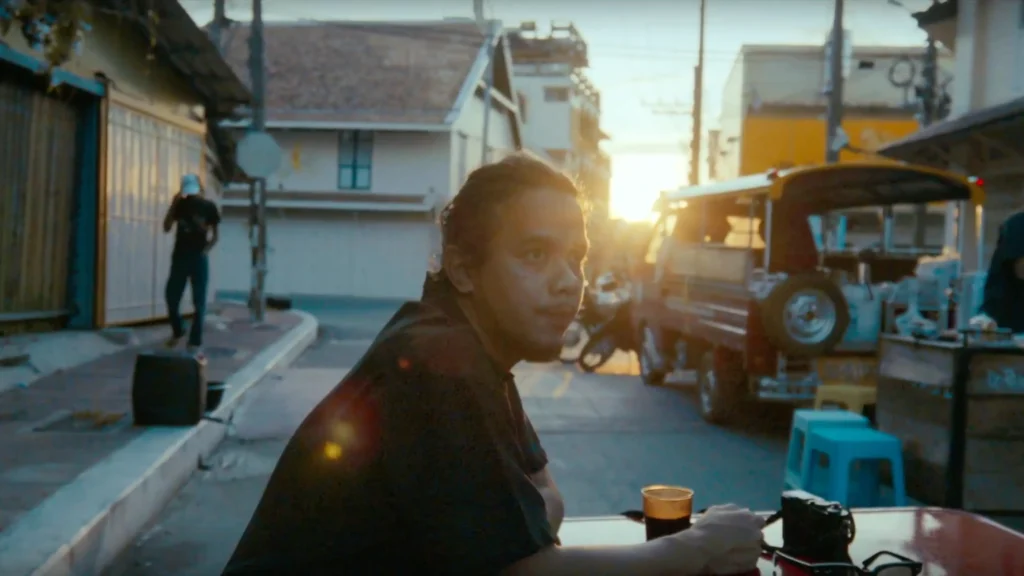
Melagu
24 mins · Nurdeen Kasor (Thailand, 2022)
This short documentary revisits the passion for Western popular music in the Deep South region. Told through three musicians from three generations, the film chronicles the journey of sound and attitude in the deeply Islamic community.
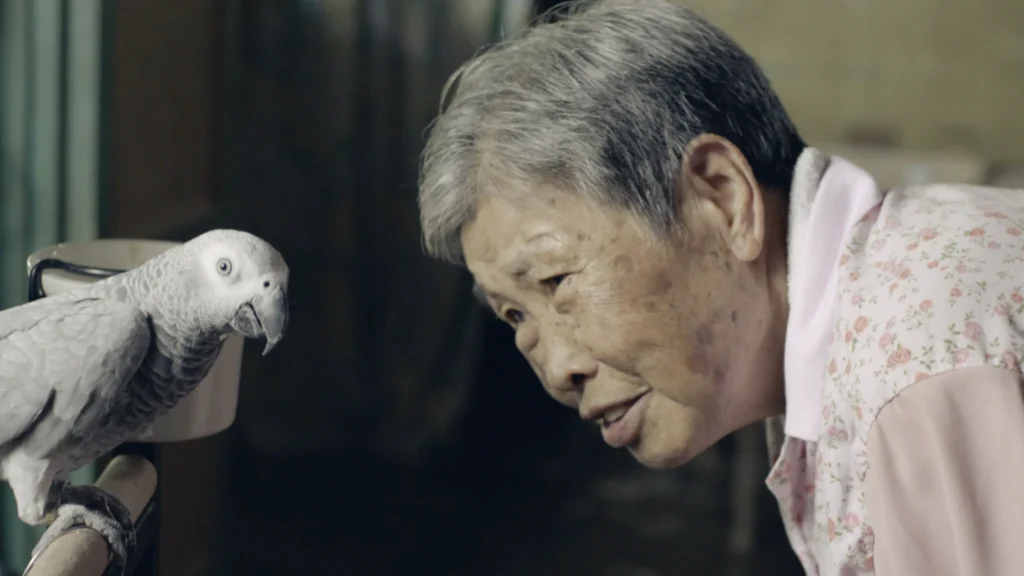
Dahdi
17 mins · Kirsten Tan (Singapore, 2015)
A tale of moral versus legal responsibility, an elderly granny finds an unexpected visitor, a young asylum-seeking girl, in her home during dinner. Based off a 2012 incident, where 40 Rohingya refugees arrived by boat into the port of Singapore.
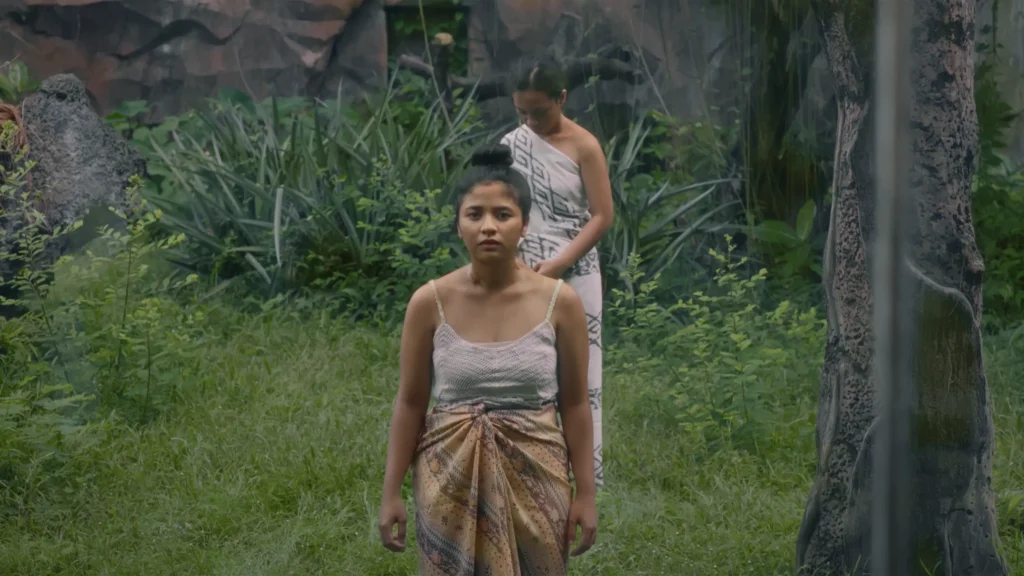
Sawo Matang
21 mins · Andrea Nirmala Widjajanto (Indonesia, 2023)
In a post-New Order Jakarta, teenager Nala is torn when her Chinese Indonesian crush asks her to perform a ritual meant only for Native Indonesians.
Talkback Discussion: Minority Counterpublics
Facilitated by Aghniadi – Indonesian filmmaker and human rights campaigner, currently Regional Communications Coordinator at Asia Justice and Rights (AJAR). His storytelling spans written and audiovisual forms, with work featured by the UN and Amnesty International.
Indigeneity and Sovereignty
Sun, Jun 8 at 4:00pm onwards
(Bangkok time / UTC+7)
(Bangkok time / UTC+7)
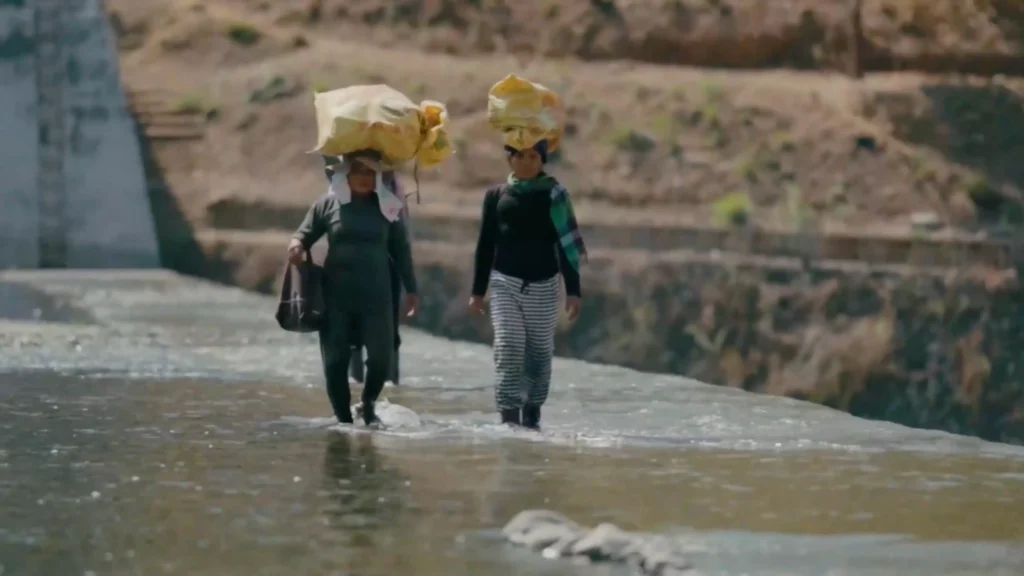
Los Mandayas
20 mins · Jhayzen Parañal (Philippines, 2024)
The Isnag people, whose existence revolves around farming near the dam and mountains, find inspiration in their livelihood. They draw strength from the land, cherishing their connection to nature and relying on it for sustenance. Their unwavering spirit and dedication inspire others.
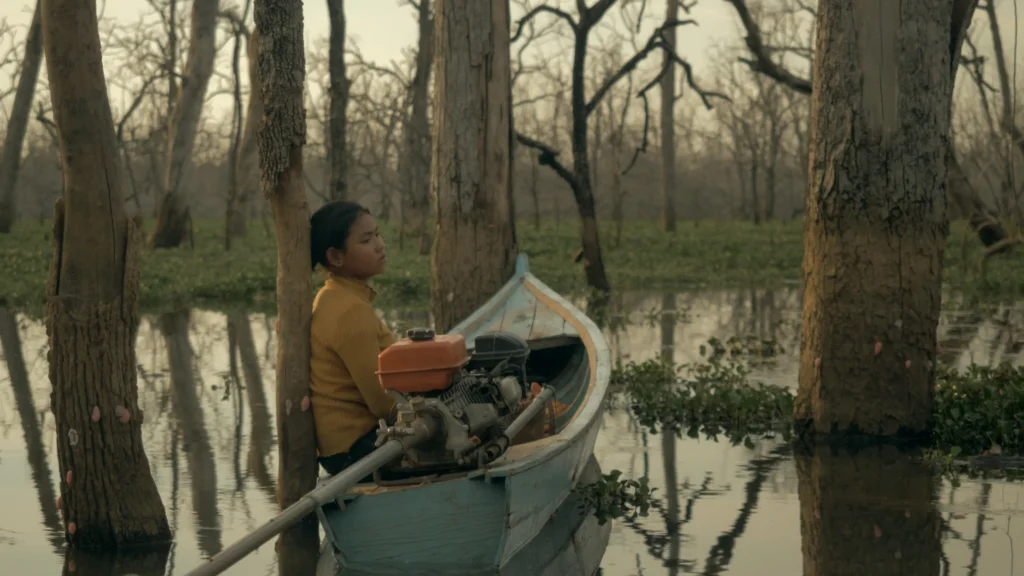
Further and Further Away
24 mins · Polen Ly (Cambodia, 2022)
The film follows a young indigenous Bunong woman and her older brother as they prepare to leave their rural village in northeastern Cambodia for Phnom Penh, seeking better opportunities. Before departing, the sister wishes to visit their ancestral village, now submerged due to the construction of the Lower Se San 2 hydropower dam. The narrative explores themes of loss, tradition, and the impact of modernization on indigenous ways of life.
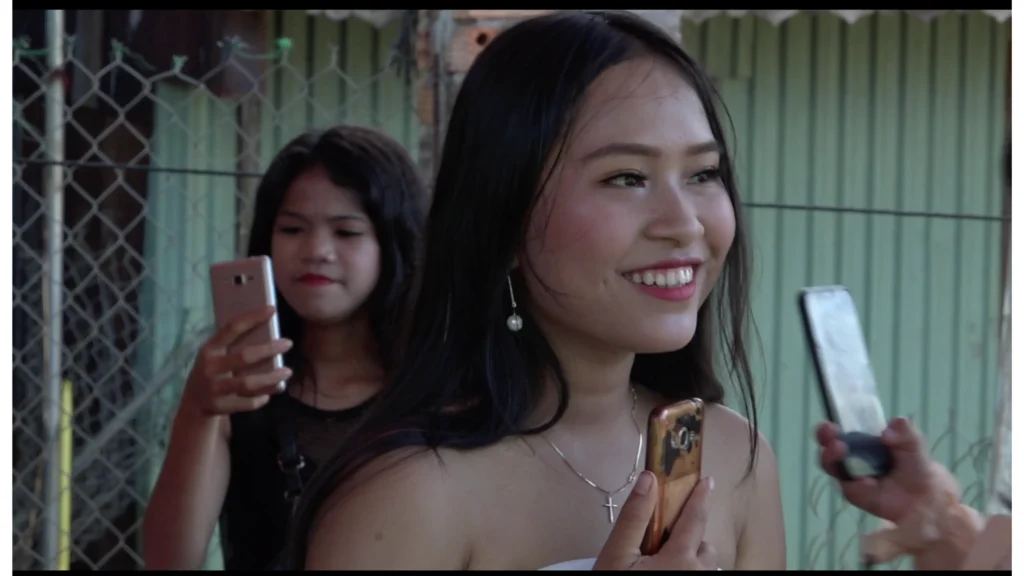
How to Improve the World
47 mins · Nguyen Trinh Thi (Vietnam, 2021)
Resisting the westernised reliance on images for creating narratives, telling stories and experiencing the world, How to Improve the World turns to music and sound as a way of perceiving through listening. Originally a 3-channel installation, this aurally centred work reflects on the past, present and future of indigenous cultures of the people in Vietnam’s Central Highlands.
Talkback Discussion: Indigeneity and Sovereignty
Facilitated by Patrick F. Campos – Film scholar, programmer, and critic from the Philippines. An associate professor at the UP Film Institute, his work explores politics, aesthetics, and regional cinema in the Philippines and Southeast Asia.
Displacement and Countermovement
Mon, Jun 2 at 7:30pm onwards
(Bangkok time / UTC+7)
(Bangkok time / UTC+7)

Aku Mau Skola (I Want to Go to School)
21 mins · Putri Purnama Sugua (Malaysia, 2018)
In a baking hot shack with a leaky roof, over 70 stateless children squeeze in daily to study under the guidance of their teacher, Rujiah Sami. Rujiah founded a school four years ago to provide basic education to those living in her community. Her determination is mirrored by some of her students who have to go beyond normal lengths to attain basic reading and writing skills with the hope of a better future. Aku Mau Skola reveals how stateless and marginalised children in Sabah have an incredible desire to pursue learning.

Our Turn
20 mins · Na Gyi / Artists' Shelter (Myanmar, 2023)
After the 2021 Myanmar coup, CDM* doctor Aung flees to a school near the Myanmar-Thailand border, where he teaches and runs a small clinic. There, he meets Ma Aye Mya, a grieving mother who lost her son in a military air raid, and Htoo Htoo, a former footballer coping with the loss of his leg. As Aung helps others through their trauma, he must also confront his own.
(*Civil Disobedience Movement Participants)

Silent Drop
5 mins · Nocollide Entertainment (Timor-Leste, 2024)
Set in Timor-Leste, this short film follows a young boy as he moves through his daily routine, carelessly using water without much thought. As he goes about his chores, he remains unaware of the value of this essential resource. But when he dozes off, a vivid dream confronts him with the consequences of his neglect.
Feminist and Queer Subjectivities
Tue, Jun 3 at 7:30pm onwards
(Bangkok time / UTC+7)
(Bangkok time / UTC+7)

short/cut
14 mins · Ostin Fam (Vietnam, 2017)
Mae, a second-generation Vietnamese teenager living in the US has an obsessive admiration for Angelina Jolie. Mae’s grandmother is over-protective of her granddaughter’s look, especially her long, unruly black hair, which has been kept untouched for years. One day, Mae passes by a hair salon’s new advertisement showing her idol with short hair. Overcome by curiosity, she walks in, and a flattering glorification begins.

The Visible
4 mins · Atikah Zainidi (Brunei, 2019)
A short documentary to explore what it’s like to be a girl in Brunei.
Three young women live in a society which has ingrained gender roles as law. They face the difficulties of being queer women in a close-knit religious society.

Diwata: Performing Ecotransfeminism
15 mins · Ram Botero (Candy) (Philippines, 2024)
Diwata explores precolonial Philippine mythology through a contemporary ecotransfeminist lens. Created by Ram Botero, a transgender Filipina artist and activist, the project introduces three divine manifestations—Dalikmata, Magindara, and Tara—drawn from indigenous beliefs and political ecologies. In this performance for camera, they appear across three natural landscapes in Mindanao, near Ram’s birthplace.
Minority Counterpublics
&
Indigeneity and Sovereignty
Wed, Jun 4 at 7:30pm onwards
(Bangkok time / UTC+7)
(Bangkok time / UTC+7)

The Purple Kingdom
31 mins · Pimpaka Towira (Thailand, 2016)
Inspired by the case of enforced disappearance of an ethnic Karen activist Porlajee Rakchongcharoen (a.k.a. Billy) who went missing in Thailand near Kaeng Krachan National Park in Petchaburi province, 100 miles (161 km) south of Bangkok. Park authorities arrested the Karen activist on April 17, 2014 for possessing a wild honeycomb and six bottles of wild honey but released him after giving a warning. He disappeared shortly afterward.

Sawo Matang
21 mins · Andrea Nirmala Widjajanto (Indonesia, 2023)
In a post-New Order Jakarta, teenager Nala is torn when her Chinese Indonesian crush asks her to perform a ritual meant only for Native Indonesians.

Los Mandayas
20 mins · Jhayzen Parañal (Philippines, 2024)
The Isnag people, whose existence revolves around farming near the dam and mountains, find inspiration in their livelihood. They draw strength from the land, cherishing their connection to nature and relying on it for sustenance. Their unwavering spirit and dedication inspire others.

Further and Further Away
24 mins · Polen Ly (Cambodia, 2022)
The film follows a young indigenous Bunong woman and her older brother as they prepare to leave their rural village in northeastern Cambodia for Phnom Penh, seeking better opportunities. Before departing, the sister wishes to visit their ancestral village, now submerged due to the construction of the Lower Se San 2 hydropower dam. The narrative explores themes of loss, tradition, and the impact of modernization on indigenous ways of life.


Virtual dialogue
Nurturing Minor Cinemas and Counterpublics: The Power of Independent Film Spaces
Sat, Jun 7 at 4:30–5:30pm
(Bangkok time / UTC+7)
via Zoom
(Bangkok time / UTC+7)
via Zoom
1 hr · A conversation with Anti-Archive (Cambodia), Hanoi Grapevine/Chùm Nho Cinema (Vietnam), Kinoise PH (Philippines), and Phoebe Pua, independent programmer (Singapore).
Explore the essential role of independent film spaces, microcinemas, and film collectives. This session unpacks how these grassroots initiatives function as critical access points and experimental grounds for small, burgeoning, struggling, and even suppressed filmmakers, their work, and their audiences. While challenges like funding and audience development persist, these spaces are crucial for nurturing a richer, more inclusive cinematic culture. They act as launchpads for emerging talent and ensure vital visibility for narratives that might otherwise remain unseen.
Virtual workshop
Empowering Survivor Stories: Participatory Documentation across Asia
Sat, Jun 7 at 7:00–8:30pm
(Bangkok time / UTC+7)
via Zoom
(Bangkok time / UTC+7)
via Zoom
1 hr 30 mins · A workshop by Asia Justice and Rights (AJAR), in collaboration with Suriya Women’s Development Centre, and Duay Jai Group.
This workshop explores participatory action research (PAR) methods developed and used by civil society organizations in Aceh, Indonesia; Cox’s Bazar, Bangladesh (for Rohingya women); and Timor-Leste. We will also examine methods adapted for the Deep South of Thailand and Sri Lanka. Participatory documentation techniques like stone & flower, body mapping, and quilting have been applied, with both similarities and differences, across these diverse country contexts to consistently empower survivors to tell their stories without the risk of re-traumatization, enabling us to understand their experiences through a truly victim-centered approach.


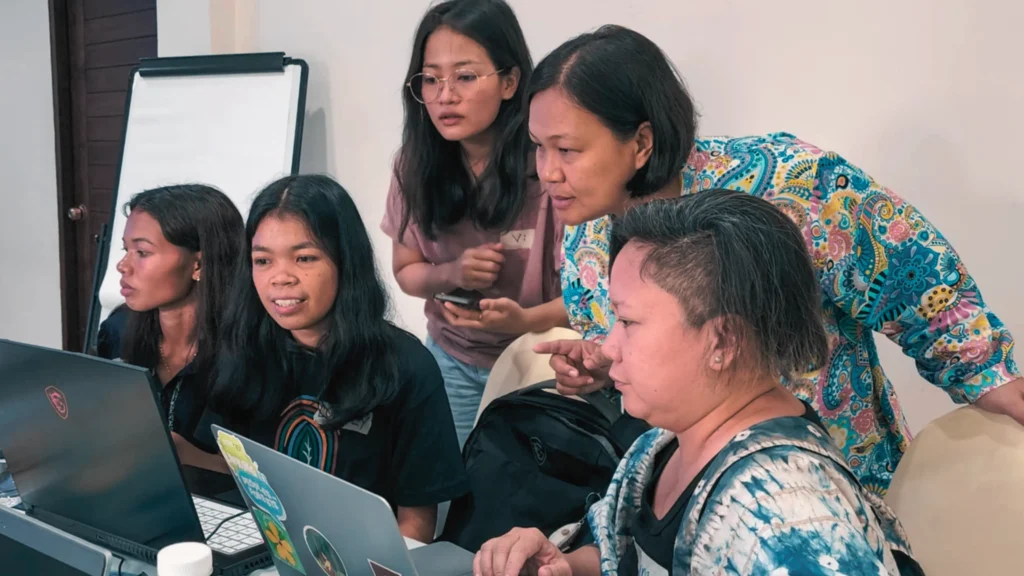
Virtual workshop
Indigenous Storytelling in Action
Sun, Jun 8 at 1:00–2:30pm
(Bangkok time / UTC+7)
via Zoom
(Bangkok time / UTC+7)
via Zoom
Presented by


1 hr · This interactive workshop explores how Indigenous communities use data, research, and visual storytelling to advocate for justice, sovereignty, and environmental rights. Learn practical tools like stakeholder/media mapping, and ethical storytelling grounded in the Indigenous Knowledge and Data Sovereignty (IKDS) framework.
Community Screenings
Philippines
Manila
University of the Philippines Film Institute
Osmeña Avenue, UP Diliman, Quezon City
Sat, Jun 7 at 3:00pm onwards
(Manila time / UTC+8)
Thailand
Bangkok
Me Goody Space
135 Charoen Nakhon Rd, Khlong Ton Sai
Fri, Jun 6 at 6:30pm & Sat, Jun 7 at 2:00pm onwards
(Bangkok time / UTC+7)
Chiang Mai
ExileHub training center
Fri, Jun 6 at 6:30pm onwards
(Bangkok time / UTC+7)
Fellowship Cafe & Co-Working Space
326 3 Muang Sat Rd, Wat Ket
Thu, Jun 5 at 6:30pm & Fri, Jun 6 at 6:30pm onwards
(Bangkok time / UTC+7)


Frequently Asked Questions (FAQ)
What is Cinemata Currents?
Cinemata Currents is a virtual film festival with screenings held online and in person. During the festival, you can also join talks and workshops online via Zoom (registration required).
How can I join Cinemata Currents online?
You can watch the films directly on this page (fest.cinemata.org) at the scheduled screening times. The video player at the top of the page will automatically play the scheduled films.
How can I join Cinemata Currents in person?
Selected film sets are screened in Manila, Chiang Mai, and Bangkok. Please refer to the community screenings schedule for more information.
How can I connect with other Cinemata Currents participants?
During the film screenings, whether you join online or in person, you can use our audience interaction tool to chat and connect with other audience members, the curators, and the filmmakers. You may use it directly on this website or scan the QR code displayed during the film screenings.
Do I need a high-speed internet connection to join Cinemata Currents online?
Fast and reliable internet connection is necessary for a good viewing experience. We are using Cloudflare’s global content delivery network (CDN) to serve this website and all the videos. To improve video streaming, the media player uses adaptive bitrate streaming that automatically adjusts video quality based on network conditions.
You may try watching the videos on different networks and using different devices to see which one works best for you. To check your internet speed, visit speed.cloudflare.com.

Project Team
Aghniadi
Jen Tarnate
Khairil Zhafri
Patrick F. Campos
Prapasiri “Nan” Suttisome
Visual Design
Amry Al Mursalaat
Contact Us
Email [email protected]
Support Us
Give via opencollective.com





